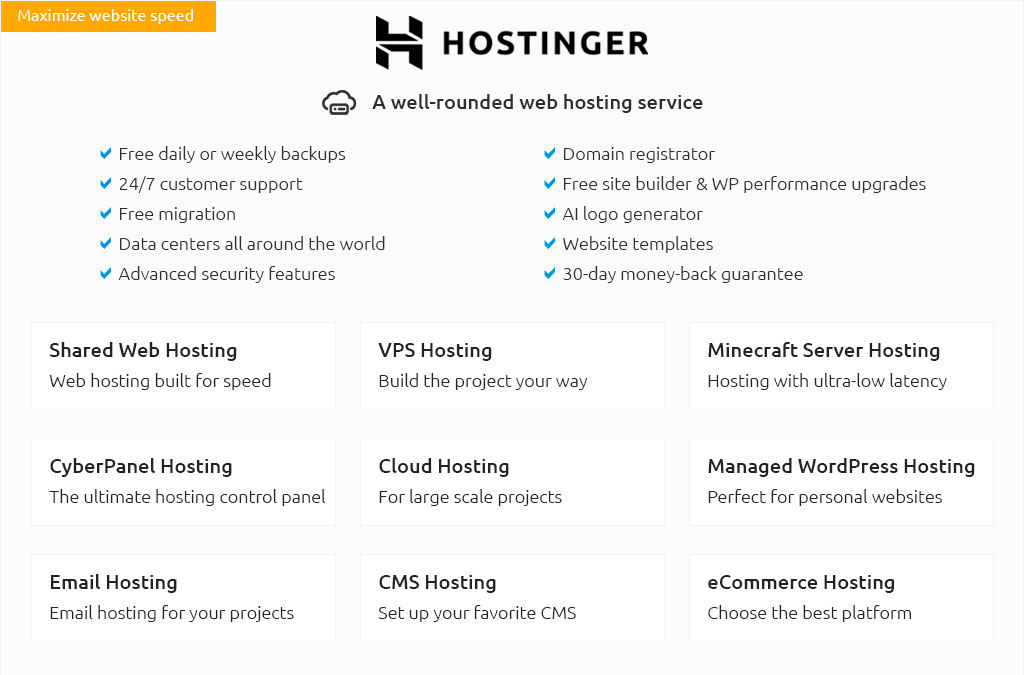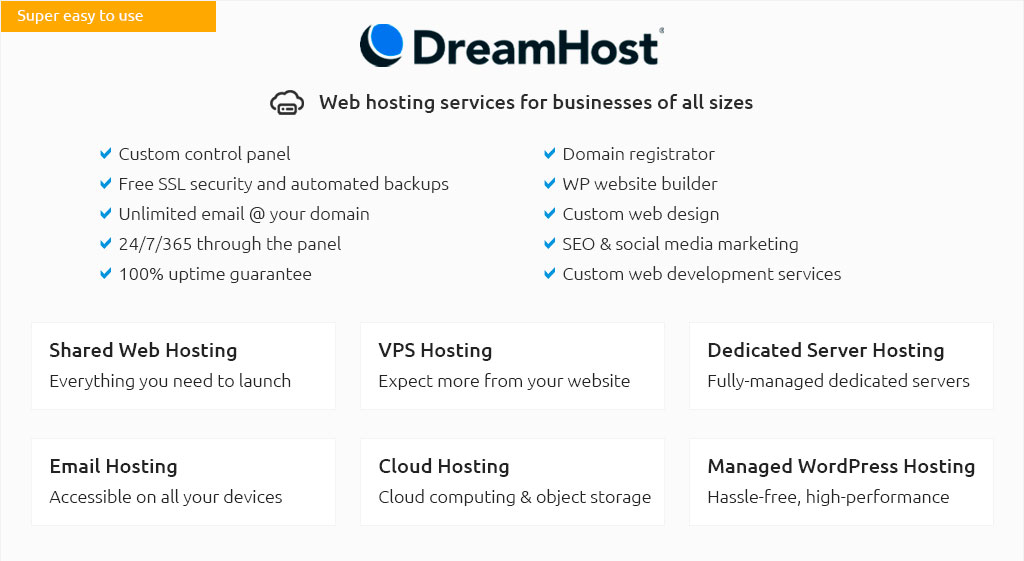 |
|||
 |
 |
 |
|
 |
|
 |
 |
 |
|||
 |
|||
 |
|||
 |
|||
 |
 |
|
Unlock the secrets of the digital realm with our definitive web hosting reviews, where we dissect the industry's top web hosts to reveal the powerhouses driving online success; whether you're a savvy entrepreneur or a curious newbie, our expert insights cut through the noise, ensuring you make informed choices and harness the full potential of your online presence with confidence and clarity-because in the ever-evolving world of the internet, only the best will do, and we're here to guide you every step of the way.
https://www.zdnet.com/article/best-web-hosting/
The best web hosting services: Expert tested ; Hostinger. Best web hosting service overall. 4.6 ; DreamHost. Best web hosting service for ... https://www.hostingadvice.com/how-to/largest-web-hosting-companies/
The grand poobah of web hosting companies, GoDaddy has dominated the industry for nearly 30 years and backs 2.5% of all websites.2. GoDaddy logo ... https://www.wpbeginner.com/hosting/
Best Web Hosting Providers - Bluehost - best value for starters + officially recommended by WordPress - SiteGround best premium web hosting service at affordable ...
|